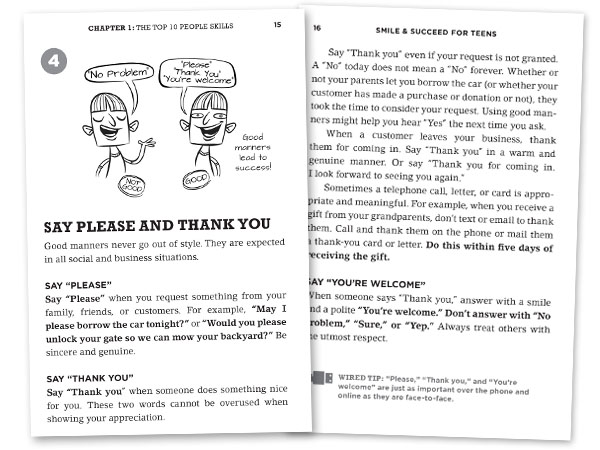Growing up is exciting and challenging for kids and parents alike. Teens on the autism spectrum may face difficulties in socializing, planning for their futures, and enjoying independence. Parents may find it hard to know how to support their children through the rites of passage of adolescence and adulthood, but there are some things to keep in mind to make this time a little easier and more enjoyable for everyone.
First, just like any teen, every teen with autism is an individual and should be treated as such. There are no one-size-fits all solutions at any age, including adolescence. Parents and teachers should be aware of the strategies and supports that helped their child in the past as possible sources of information for the present and future. For example, a child who did really well learning from video models may grow up into a teenager who can learn quite a lot from YouTube videos (under the appropriate supervision, of course). It’s important to make sure that supports are thoughtfully updated to be age-appropriate, too. Individuals with autism do not need to be stigmatized by being associated with materials and activities that are typically seen as more child-like. For example, a teenager with autism who requires a reinforcement system would hopefully be able to use a system that is age-appropriate like actual money, or discreet enough like points awarded in a phone app or on an index card, instead of a colorful token economy with stickers or pennies. Many children with autism benefit from activity schedules, which can be updated for older children using the same organizational strategies that other teenagers may use, including smartphone-based apps for scheduling, reminders, and to-do lists.
Another important consideration in supporting teenagers with autism is that their goals may need to be updated as they get older. Hopefully, the “5-year rule” has been observed, in which goals are carefully selected according to what the individual will need to be able to do in the next 5 years. This means not waiting until the child is in the midst of puberty to teach the self-care routines associated with that time, and not waiting until the child has become an adult who is interested in having a romantic relationship to teach some of the social skills associated with that part of life, in addition to many other examples. If not, then it’s never too late to work on these skills, but it’s definitely easier and less stressful to address them earlier rather than later. Keeping this in mind, teens with autism may need to be thinking further ahead than typical teens. For example, if college is going to be a goal, it’s helpful for parents and school supports to know and be preparing for this from the beginning of high school. Similarly, if the young person is aiming more towards a career path, the skill set needed for work should be addressed well in advance of the time that he or she is expected to start to work.
Finally, adolescence is a time to celebrate and enjoy independence. For teens with autism, independence should be approached as a goal for every area of life, with the careful assessment of safety and readiness. Independence can be achieved at the right level for each individual, given the appropriate goals and supports. For example, many teenagers enjoy learning to travel independently, from taking public transportation to eventually driving independently. If a teen with autism is able to safely navigate these skills, that can be a great achievement. For teens who may not be ready for this level of independence, alternatives can be focused on, such as learning to map out public transportation routes that will be traveled with a parent or support person, or being responsible for one’s own money when traveling with supports. For individuals with autism at any age, there are always new levels of independence to strive for.
About The Author
Dana Reinecke, PhD, BCBA-D is a doctoral level Board-Certified Behavior Analyst (BCBA-D) and a New York State Licensed Behavior Analyst (LBA). Dana is a Core Faculty member in the Applied Behavior Analysis department at Capella University. She is also co-owner of SupervisorABA, an online platform for BACB supervision curriculum, forms, and hours tracking. Dana provides training and consultation to school districts, private schools, agencies, and families for individuals with disabilities. She has presented original research and workshops on the treatment of autism and applications of ABA at regional, national, and international conferences. She has published her research in peer-reviewed journals, written chapters in published books, and co-edited books on ABA and autism. Current areas of research include use of technology to support students with and without disabilities, self-management training of college students with disabilities, and online teaching strategies for effective college and graduate education. Dana is actively involved in the New York State Association for Behavior Analysis (NYSABA), and is currently serving as President (2017-2018).




 This social skills group will promote positive peer relationships among teens through role playing, recognizing emotions, social stories, and modeling. This group is ideal for teens who can independently engage in conversation.
This social skills group will promote positive peer relationships among teens through role playing, recognizing emotions, social stories, and modeling. This group is ideal for teens who can independently engage in conversation.